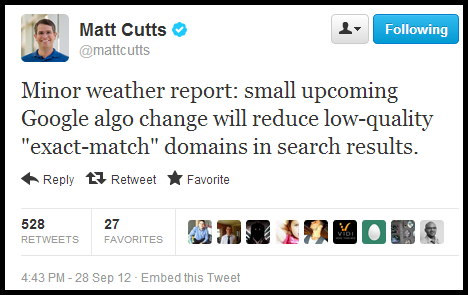How to Choose a Domain Name
Naturally, most businesses spend a lot of time, effort and money on branding and choosing a business name. The next step, or even the parallel step for new businesses is to choose and register a domain name. In 2017, the two must coincide. This is especially true since we reached the point where .com domain names are hard to come by. A company’s branding process should bear in mind that domain names are a vital part of the process. This will ultimately also affect social profile URLs and so forth.
So – if you are a new business or a business in the works, and you are asking yourself how to choose a domain name to best suit your website, consider reading and implementing the following tips.
1. Choose .com over other extensions
Even though there are endless TLDs (top-level domains), most people still consider .com to be the only relevant one. If someone knows your brand name, chances are they will auto-complete the term with .com. Also, in search engine results, people tend to choose the .com results out of familiarity. Hence, if possible with your brand name (and within your budget), go for the safe choice and filter the options to .com.
The above is relevant for both international websites and the United States. However, if you are a local business in the UK or Australia – consider using co.uk or .com.au as people are more inclined to search local businesses with local country domain extensions. For example, if you are located in London and are looking to purchase something on Amazon, you will automatically open Amazon.co.uk, not Amazon.com.
2. Use your brand name
It is beneficial for the chosen URL to be unique – just as Google, Skype and Zynga are distinctive, you want to stand out from the crowd. If you have a unique business name and .com is up for grabs – then voilà! You have a winner. But don’t forget – you want to aim at not only being unique, but also relevant to your market. This leads us to our next point.
3. Use keywords
a) Small/mid-scale industry businesses:
According to Godaddy.com, “research showed that including a keyword in a website domain name has a widespread and positive impact on SEO.” Using a keyword which best describes your business can be a great advantage. However, don’t be too broad. For example “LeoCarwash .com” is better than just “Carwash .com”. The keyword will most probably assist in ranking higher on SERPs, plus you are using a unique name which will eventually become your brand. Having said that, don’t be too specific – who knows what your business might be selling in the future. For example, don’t go for “ShellyCupcake .com”, even if you’re only selling cupcakes at the moment. Consider “ShellyBakery .com” or “ShellySweets .com” on the chance that you might sell a variety of desserts in the future.
See what Google Webmasters’ team has to say about balancing between the use of keywords and branded domain names:
b) Amazon affiliate websites:
If you are seeking the ultimate domain name to promote your Amazon affiliate website, you will probably consider using an exact match domain (EMD). In theory, this sounds like the ultimate choice – for example, “buyCheapRugs .com” which matches a precise search term may help with the specific keyword ranking. But, in practice, this may be a mistake, as people tend to see these exact match domains as spammy and scroll down past them. Google also dislikes EMDs. Matt Cutts, Former Head of Webscam Team at Google, tweeted back in 2012: “small upcoming Google algo change will reduce low-quality “exact-match” domains in search results.”
4. Keep it short and simple
It is a long-known fact that short URLs are better for search engines as well as users. Moreover, using a domain name that is easy to read and pronounce may be beneficial. Say the name of your website out loud – how does it sound? Catchy? Complicated? Go for the simple choice. Shorter URLs are also much easier to share via social media, emails, marketing materials, etc. Don’t use hyphens in your URL – this will only lengthen and complicate it for those who type it out. Also, don’t use words which are prone to spelling mistakes, for example: Mississippi, bizarre, and glamorous.
5. Register similar domain names
If your budget permits, consider purchasing the same domain with .net, .info and other popular domain extensions. That way, if your brand expands, no one will be able to compete by purchasing the other options.
6. Research the legal implications
Before finalizing your domain name, make sure you are not using a trademark. Conduct a simple Google search, and if your brand name comes up, do some research on the size of the business. If it’s a big trademark, there may be legal implications. If it’s a small business, it might be unwise to use the same domain name (depending on the physical location). You should under no circumstances use a known brand name in your URL (Intel or Adidas, for instance).
7. Check that your domain name is not taken on social media
Make sure to check that your domain name is not already taken on social media platforms such as Facebook, Twitter, Google+, StumbleUpon, SnapChat, Instagram, Pinterest, etc. You are aiming for consistency throughout all online platforms.
8. Check the URL history
Conduct a “site:websitename.[TDL]” search to ensure the URL is not currently indexed on Google. You can use The Internet Archive (which has over 20 years of documented web history) to see a URL’s history across the web.
Conduct and a full “websitename.[TDL]” search that will give a list of mentions across the web. Researching which sites link back to a URL is extremely important – you don’t want to purchase a domain with spammy backlinks. If you have access to paid tools, you can use Ahrefs.com or Majestic.com for a full backlink profile.
You should also ensure the site has not been flagged by Google or has an active penalty.
9. Don’t be cheap
So, you found your ideal domain name, it suits your business name and has an available .com TLD, but comes with a hefty price tag. Think about the impact your ideal domain name will have on your brand in the future. I’m not saying you should spend millions on the ideal name, but don’t let a difference of $200 bucks impact your decision.
10. Brainstorm with your team
Use your colleagues’ brains to brainstorm together! The more ideas open for debate, the better. Try to avoid domain name generators which provide automatic extensions – they do not know your brand and what your business goals are. Eventually, if you follow the above guidelines, you will be able to narrow down the top ideas and choose the ideal domain name for your business.




